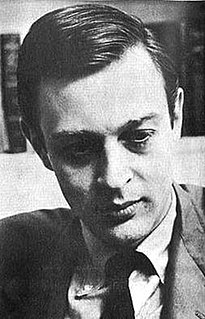A Quote by Kathryn Schulz
The inability to experience regret is one of the diagnostic characteristics of sociopaths.
Quote Topics
Related Quotes
I regret that I was never an athlete. I regret there isn't time in life. I regret that so many of my friends have died. I regret that I was not brave at certain times in my life. I regret that I'm not beautiful. I regret that my conversation is largely with myself. I'm not part of the conversation of the world.
Sociopaths are more complicated psychopaths; the difference between a sociopath and a psychopath is a sociopath is incredibly charming. There are a lot of sociopaths that are CEOs. They don't necessarily kill people but they're able to walk into a big social function and make everybody think they're the kindest, coolest, smartest, most interesting person in the room.
I believe that all genial classrooms share at least five characteristics that guide their instruction regardless of content or grade level. These characteristics are (1) freedom to choose, (2) open-ended exploration, (3) freedom from judgment, (4) honoring every student's experience, and (5) belief in every student's genius.
Sociopaths differ fairly dramatically in how their brains react to emotional words. An emotional word is love, hate, anger, mom, death, anything that we associate with an emotional reaction. We are wired to process those words more readily than neutral, nonemotional words. We are very emotional creatures. But sociopaths listen as evenly to emotional words as they do to lamp or book - there's no neurological difference.
The marvellous thing about writing, whether it be fiction or journalism, is that it is simultaneously the most intimate and the most anonymous of meetings between people. It is profoundly intimate in reaching into the psyche of another, at the same time as being devoid of social characteristics, cultural characteristics, economic characteristics.
One of the interesting characteristics of the Ego Tunnel is that it creates (as Finnish philosopher Antti Revonsuo called it) a robust "out-of-the brain experience", a highly realistic experience of not operating on internal models, but of effortlessly being in direct and immediate contact with the external world - and oneself.
































